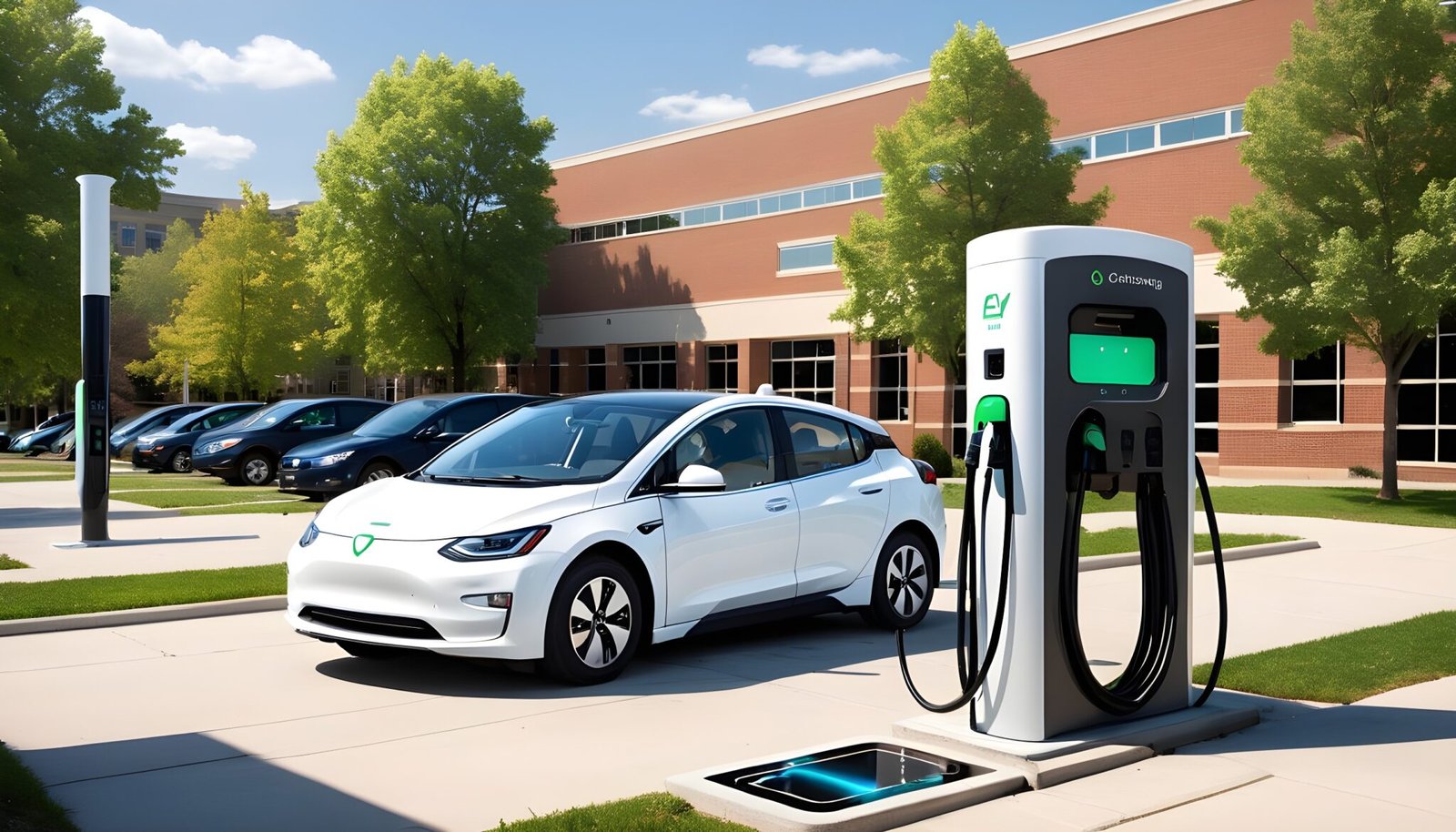
In an era where sustainability is a priority, educational institutes are taking a proactive approach by embracing green initiatives. One such crucial step towards environmental consciousness is the integration of Electric Vehicle (EV) charging stations within the premises. In this blog we explore the transformative impact of integrating Electric Vehicle (EV) charging stations into educational institutes, creating a green ecosystem that aligns with environmental consciousness and technological progress.
Environmental Responsibility:
Educational institutes play a pivotal role in shaping future leaders and advocates for a sustainable planet. Incorporating EV charging stations aligns with the institution’s commitment to environmental responsibility, reducing carbon footprints, and fostering eco-conscious practices.
A Green Campus Image:
EV charging stations serve as practical classrooms, bridging theoretical knowledge with hands-on experiences. Students witness the integration of renewable energy and cutting-edge technology, preparing them for careers in the fast-evolving landscape of clean energy and electric mobility.
Comprehensive Analytics and Reporting:
Informed decisions drive progress. Our charging stations provide comprehensive analytics and reporting tools, empowering campus administrators with valuable insights into energy consumption, usage patterns, and system performance.
Community Engagement through Sustainability:
EV charging stations become focal points for community engagement. Institutes can organize events, workshops, and awareness campaigns around sustainability, fostering a sense of community and shared responsibility towards environmental conservation.
Collaborative Opportunities for Growth:
The adoption of EV charging stations opens doors for collaborations with green energy organizations, government initiatives, and EV manufacturers. These collaborations can result in funding opportunities, sponsorships, and joint efforts to further enhance the institution’s sustainability goals.
Financial Savings through Operational Efficiency:
The installation of EV charging stations contributes to operational efficiency, translating into financial savings. By strategically placing charging stations, institutes can optimize energy consumption, reduce utility costs, and create a more sustainable campus while realizing immediate cost saving which can contribute to a more financially efficient campus.

Considerations for Implementation:
· Evaluate the campus layout for optimal charging station placement.
· Choose charging equipment compatible with various EV models.
· Implement a user-friendly payment or access system.
· Consider solar-powered charging stations for enhanced sustainability.
Inspiring Students to be Future Environmental Leaders:
The presence of EV charging stations encourages students to adopt sustainable transportation habits. As they witness the convenience and benefits of electric vehicles, it promotes a shift towards eco-friendly commuting choices, contributing to a more sustainable and environmentally conscious campus community.
By incorporating clean energy practices into their daily lives, students develop a heightened awareness of their ecological footprint, fostering a generation of environmentally conscious individuals who are poised to lead and advocate for sustainable practices in their future endeavors
Promoting Campus Connectivity & Safety for Students:
EV charging stations create central hubs where students can converge and engage, fostering a sense of community. As students charge their electric vehicles, these stations become social spaces, encouraging interaction, networking, and the exchange of ideas among a diverse student population.
EV charging stations contribute to campus safety by reducing the need for students to travel off-site for fuel, especially during late hours. This not only ensures a more secure environment but also aligns with the institution’s commitment to the well-being of its student community.
Conclusion:
As campuses evolve into epicenters of sustainability, the integration of EV charging stations goes beyond convenience; it marks a revolutionary step towards a future where education, innovation, and environmental responsibility converge.
The journey from classrooms to charging stations is not just a shift in infrastructure; it’s a transformative commitment to shaping a world where clean energy and education go hand in hand. The green revolution on campus is charged, connected, and poised to redefine our collective tomorrow.


